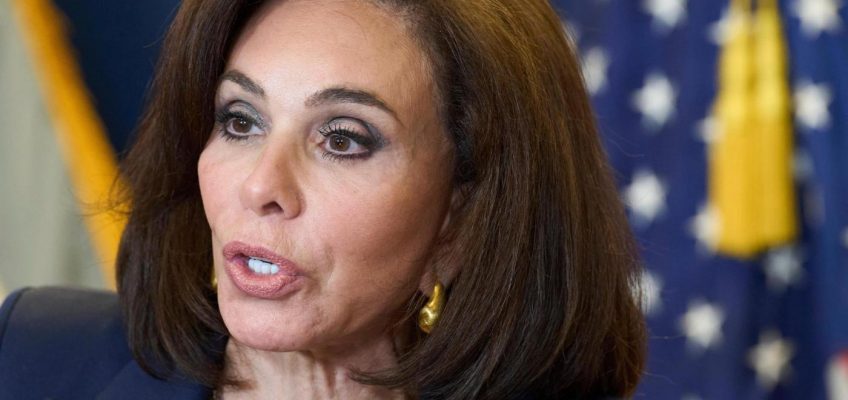By MICHAEL KUNZELMAN, Associated Press
WASHINGTON (AP) — A federal grand jury has refused to indict an Indiana woman accused of threatening to kill President Donald Trump, another sign of a growing backlash against Trump’s law enforcement crackdown in the nation’s capital.
Nathalie Rose Jones was arrested on Aug. 16 in Washington, D.C., on charges that she made death threats against Trump on social media and during an interview with Secret Service agents.
But a grand jury composed of Washington residents refused to indict her based on evidence presented by Justice Department prosecutors, according to her attorney, assistant federal public defender Mary Manning Petras.
“Given that finding, the weight of the evidence is weak,” Petras wrote in a court filing. “The government may intend to try again to obtain an indictment, but the evidence has not changed and no indictment is likely.”
It is extraordinarily rare for a grand jury to refuse to return an indictment, but that has happened in other cases prosecuted by U.S. Attorney Jeanine Pirro’s office since Trump ordered a surge in patrols by federal agents and troops in the District of Columbia.
A grand jury refused to indict a government attorney who was facing a felony assault charge for throwing a “sub-style” sandwich at a Customs and Border Protection agent — a confrontation captured on a viral video.
Three grand juries voted separately against indicting a woman accused of assaulting an FBI agent outside the city’s jail in July, where she was recording video of the transfer of inmates into the custody of Immigration and Customs Enforcement agents.
A grand jury also rejected an indictment against a man who was arrested on an assault charge by a U.S. Park Police officer with the assistance of National Guard members.
Grand jury proceedings are secret, so the reasons for their decisions don’t become public. But the string of rebukes has fueled speculation that residents serving on grand juries are using their votes to protest against the White House’s surge.
Related Articles
American kids are less likely to reach adulthood than foreign peers
The 150-year-old law that governs military’s role in local law enforcement
Nonprofits face a tough funding landscape. They hope better storytelling will bring more donations
Crash victims’ families prepare to make what could be their final plea for Boeing’s prosecution
Final preparations for the trial of the man accused of attempting to assassinate Trump in Florida
“Grand juries, judges, we will not simply go along with the flow,” U.S. Magistrate Judge Zia Faruqui said during a hearing last week for a surge-related criminal case.
A spokesperson for Pirro’s office didn’t immediately respond to an email seeking comment. Pirro posted a comment on Jones’ case two days after her arrest.
“Threatening the life of the President is one of the most serious crimes and one that will be met with swift and unwavering prosecution. Make no mistake — justice will be served,” Pirro wrote on X, formerly known as Twitter.
Prosecutors said Jones, 50, of Lafayette, Indiana, posted a Aug. 6 message on Facebook that she was “willing to sacrificially kill this POTUS by disemboweling him and cutting out his trachea.” When Secret Service agents questioned her on Aug. 15, Jones said she hoped to peacefully remove Trump from office but “will kill him out at the compound if I have to,” according to prosecutors. Jones was arrested a day later in Washington, where she joined a protest near the White House.
Petras said Jones repeatedly told Secret Service agents that she had no intent to harm anyone, didn’t own any weapons and went to Washington to peacefully protest.


Leave a Reply